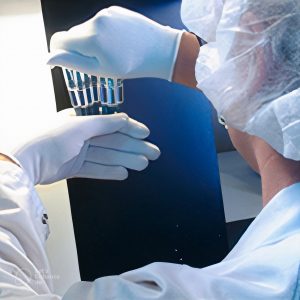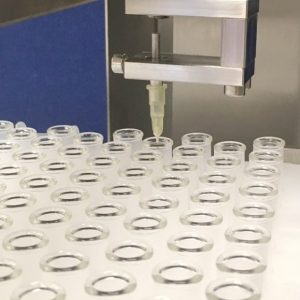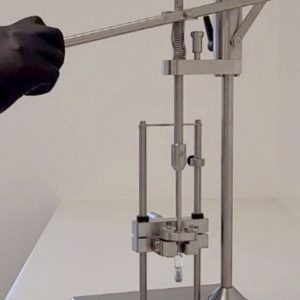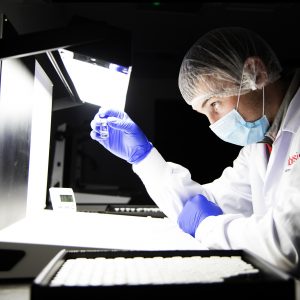News Blog
Keep up to date with the latest news, insights and features from the Adelphi Group of Companies
Navigating Syringe Processing Hurdles for Pharmaceutical R&Ds and Manufacturers
November 8, 2023
In the world of pharmaceutical and healthcare manufacturing, the need for precision and quality control is paramount. To ensure the safe and accurate delivery of life-saving medications, syringes are indispensable. However, the journey from the initial selection of the syringe to the final product inspection includes many choices which will affect your process efficiency and refinement. In this article, Dean Willis, with over 30 years of experience in the industry, will navigate through the four key considerations during syringe processing, and offer advice about the potential hurdles, as well as insights into making informed choices at each stage.

Hurdle #1: Choosing the Right Syringe for your Application
The Challenge: Selecting the appropriate syringe is a crucial first step. It’s not just about the capacity; it’s about compatibility. The syringe and stopper material, size and design should align with the specific needs of the product being filled, and the route of application. Failure to consider the variables can result in leaks, formulation compatibility issues and risk to the patient.
The Solution: Adelphi Group company Adelphi Healthcare Packaging offers experienced advice to assist you in choosing the right syringe for your project. A prefillable syringe is not typically an off-the-shelf item, but is ‘built’ with your project in mind. The experts at Adelphi can help you ascertain the ideal component materials, needle gauge and safety features required for your specific drug formula and application. Collaboration with experts in the healthcare packaging field ensures that you make the correct choice first time, preventing issues that could lead to costly recalls and product wastage.

Hurdle #2: Filling
The Challenge: The filling process requires the utmost precision, to avoid wastage and ensure consistent dosing. Using incompatible equipment or techniques can lead to inaccurate dosing, overfilling, and, in the worst case, underfilling, affecting the product’s efficacy and safety.
The Solution: The XYZ Distributor from Adelphi Manufacturing, is designed to work seamlessly with the Accuramatic Peristaltic Dispenser, and offers automatic filling for nested syringes.
It’s international pharma-quality compliant hygiene features include:
- Your product only comes into contact with the inside of one uninterrupted length of silicone tubing, platinum cured, which will withstand repeated sterilisation.
- The disposable tubing can easily be removed and replaced with fresh sterile tubing, and the machine is instantly ready to fill your next product.
- Bacteriological inline filtration can be performed at the outlet side of the pump.
- Some customers place the XYZ Distributor into a glove box or laminar flow box, to ensure a higher level of hygienic filling.
Investing in such equipment ensures precise and reliable filling, avoiding issues that could harm your product’s reputation and patient safety. Buy once, and buy right.

Hurdle #3: Stopper Insertion
The Challenge: Efficient and air-free stopper insertion is critical to the integrity of your product. Inefficient insertion can lead to leaks, product contamination, and air entrapment, compromising the product’s safety and efficacy.
The Solution: The Syringe Stopper Press from Adelphi Manufacturing improves the consistency of this process. With its stainless steel construction and adaptability for glass or plastic syringes, it ensures proper stopper placement and air expulsion.

Hurdle #4: Inspection
The Challenge: Ensuring product quality and safety is non-negotiable. Particulate contamination in injections and intravenous infusions is a significant concern during syringe processing. Missing these contaminants during inspection can lead to adverse patient effects and severe consequences.
Manual inspection is a vital and highly regulated procedure in pharmaceutical research and manufacturing laboratories, with inspectors searching for critical defects which could potentially lead to patient safety issues.
The Solution: Even after automated visual inspection, a sample of units from each batch is inspected a second time, to ensure that any remaining level of defects is statistically acceptable. Current compendia and regulations require this inspection to be done manually – regardless of the complexity and sophistication of automated visual inspection.
Dean recommends the Apollo II Liquid Inspection Unit, – an EU & US pharmacopoeia-compliant unit which is highly regarded throughout the industry.
Accurate inspection provides insights into the type and volume of unwanted contaminants – this enables laboratory teams to identify the source(s) of these contaminants, so they can be reduced or even eliminated moving forward.
Are you having difficulty inspecting products such as opalescent, coloured or opaque solutions, or lyophilisates?
To overcome the challenges presented by these products, the European Pharmacopoeia Commission recommends the following measures to improve visual detection rates:
- Extended inspection times, to more than 5 seconds against both black and white backgrounds.
- The use of light intensities higher than 3750 Lux.
The Apollo II High Intensity Liquid Viewer provides a light level of 8,000-10,000 Lux, which not only allows manufacturers of challenging products to accurately detect unwanted particulate contamination, but also enables inspection of liquids in coloured glass containers.
In summary, proactively addressing the potential challenges of syringe processing before your operations commence, requires a methodical approach and the right choice of equipment and containers. By collaborating with trusted experts and suppliers, and utilising innovative solutions like those discussed above, manufacturers can enhance their efficiency, reduce errors, and maintain the highest standards of product quality.
Navigating these hurdles ensures the safe and accurate delivery of vital medications, whilst minimising the risks associated with syringe processing. Choose your syringe wisely, employ the right equipment, and invest in quality control measures to meet the evolving demands of the pharmaceutical and healthcare industries. Your commitment to these principles will not only streamline production but also bolster your reputation in the field.
Author: Dean Willis, Sales Director – Adelphi Group of Companies
